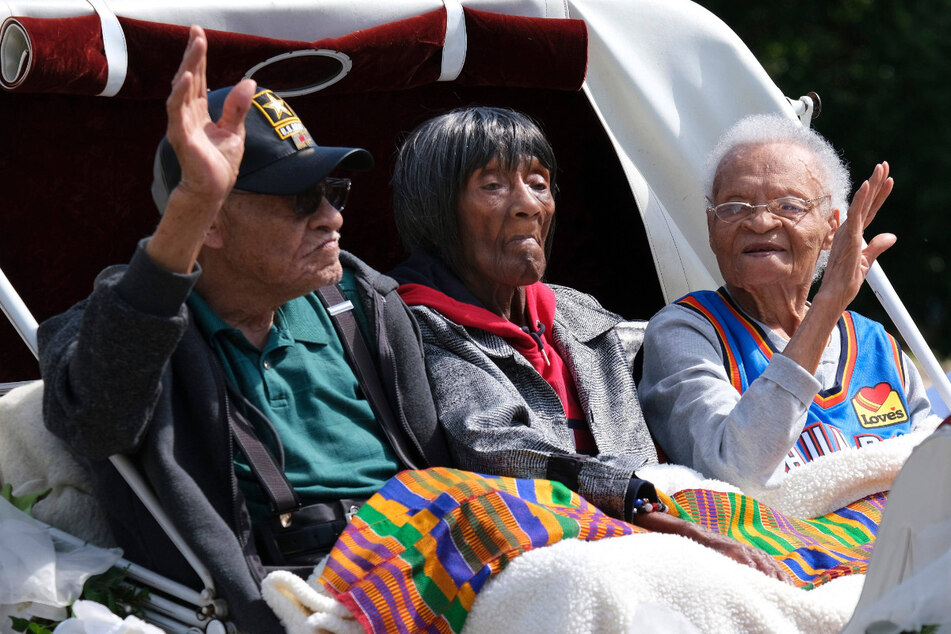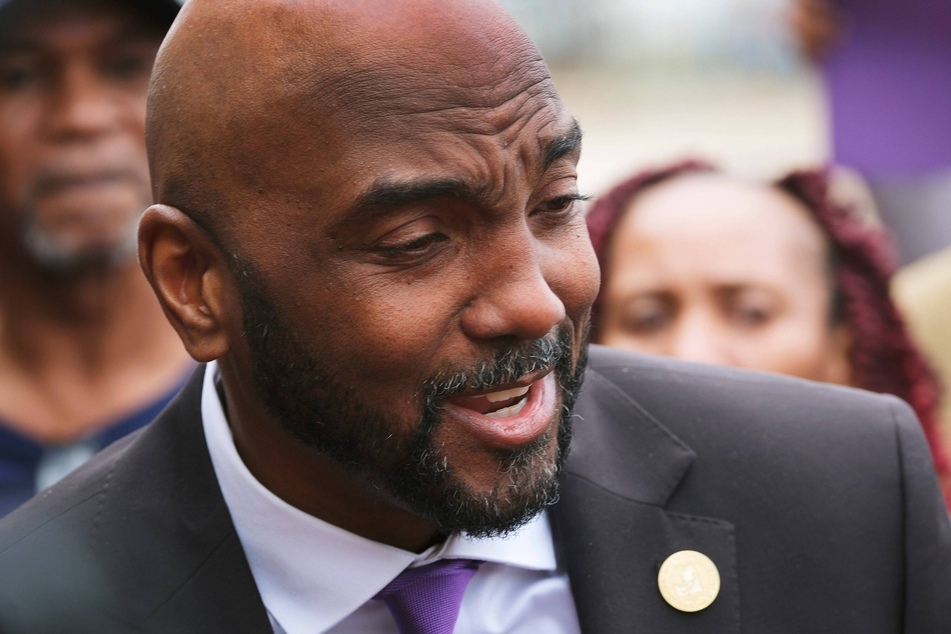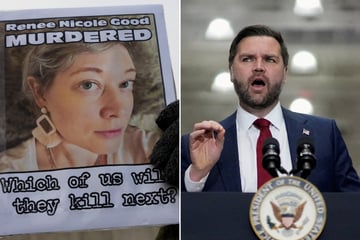Tulsa Race Massacre survivors demand their day in court in high-stakes reparations case hearing
Oklahoma City, Oklahoma - The legal team representing the last two living survivors of the 1921 Tulsa Race Massacre shared powerful oral arguments before the Oklahoma Supreme Court on Tuesday as their reparations case hangs in the balance.

Tuesday's hearing could be the last court appearance in a historic lawsuit seeking redress for Tulsa Race Massacre survivors Viola Ford Fletcher and Lessie Benningfield Randle, both 109.
Fletcher's brother, World War II veteran Hughes Van Ellis, passed away last October at 102 without receiving reparations.
Fletcher, Randle, and their legal representatives are hoping to reverse conservative District Court Judge Caroline Wall's July 2023 decision to dismiss their lawsuit. In August, the Oklahoma Supreme Court agreed to review an appeal and earlier this year granted a hearing in the case.
In the suit, the centenarians accuse the City of Tulsa, Tulsa County, the Tulsa Regional Chamber, the Oklahoma National Guard, and other defendants of creating an ongoing public nuisance that continues to harm the Greenwood community today. They are hoping the Oklahoma Supreme Court will rule that the case may proceed to the discovery phase.
"You have defendants who have never, ever been held legally responsible for the massacre, and to this very day, these defendants deny that they perpetrated the massacre. They deny that they created a public nuisance. They deny that they have any legal responsibility to clean up the public nuisance – the blighted neighborhood of Greenwood that they created," attorney and Greenwood descendant Damario Solomon-Simmons told the nine-justice panel on Tuesday.
"Time is of the essence for these two 109-year-old survivors who are here with us today," he urged. "We want these survivors to see justice in their lifetime."
Impacts of 1921 Tulsa Race Massacre still felt today

Fletcher and Randle were just children when they were forced to flee their homes in one of the deadliest acts of racial violence in US history.
Over May 31-June 1, 1921, a white mob killed hundreds of Black Americans in Tulsa's Greenwood district, known as Black Wall Street. Attackers decimated thousands of buildings and homes in their murderous rampage, and even dropped fire bombs on the community from decommissioned US military planes.
After the Tulsa Race Massacre, authorities immediately sought to cover up the crimes by destroying police records and burying bodies in unmarked mass graves.
The survivors and Greenwood descendants have not received any compensation since the coordinated white-supremacist assault. Over one-third of the homes and businesses destroyed were never rebuilt, while more than 8,000 people were made homeless overnight, the plaintiffs argue.
The impacts of the attack may still be felt in Tulsa today, as stark racial disparities persist across wealth, education, employment, housing, health, and the criminal legal system.
Meanwhile, the survivors accuse city and state authorities – the very entities responsible for the massacre – of unjustly profiting off their stories without redressing the harms to their community. They also note that the defendants own property in the Greenwood neighborhood, in some cases due to seizures during the massacre – a claim they believe they can prove if the lawsuit moves forward.
"We have a lot of testimony and facts that show why we need discovery in this case," Solomon-Simmons insisted.
"These plaintiffs have been waiting almost 103 years for their opportunity to be in court to prove what happened to them and their community. We're just simply asking that this court give us the opportunity to be remanded back to the district court to prove our claims."
Cover photo: IMAGO / USA TODAY Network

